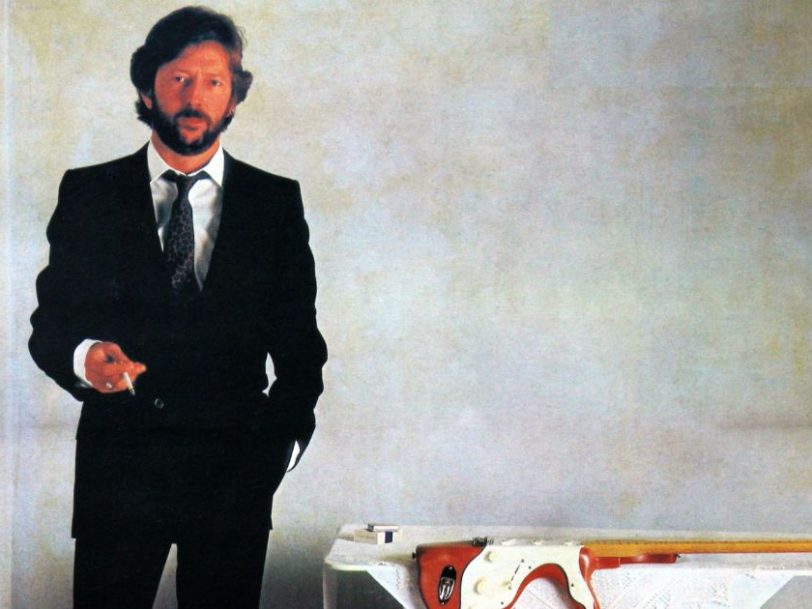Graham Hughes’ album cover for Money And Cigarettes shows Eric Clapton, cigarette in hand, standing next to an ironing board with a melting Fender Stratocaster guitar on top. Clapton said he chose the title of the album “because that’s all I saw myself having left” after his first rehabilitation from alcoholism.
Buy Eric Clapton’s ‘The Complete Reprise Studio Albums, Vol.2’ vinyl box set here.
Making a change
By the time Clapton travelled to Nassau, Bahamas, in late 1982 to record Money And Cigarettes at Compass Point Studios, he had finally enjoyed some lengthy periods of sobriety, taking his mind off his problems with spells of fly-fishing. Clapton was candid about his alcohol addiction, later telling David Frost in an interview: “In my case it was very hard because I loved drinking. I mean, being an Englishman, I think drinking’s so much part of our heritage, especially the country pub, and on a summer’s day. I’d love to do that but unfortunately I wouldn’t be able to stop, you see. I’d just go on and on and on.”
Clapton shared co-production credits with renowned studio engineer Tom Dowd, who believed that the musician needed to shake up his band for the record. Guitarist Albert Lee was recalled for the sessions, but several of Clapton’s long-term bandmates – including keyboardist Gary Brooker and drummer Henry Spinetti – were replaced by session professionals, among them Stax Records’ long-serving bassist Donald “Duck” Dunn and Muscle Shoals drummer Roger Hawkins.
The most inspired change was to bring in slide guitar maestro Ry Cooder. Clapton and Cooder clicked, especially on the album’s opening track, a version of Sleepy John Estes’ Everybody Oughta Make A Change. The pair also worked well together on The Shape You’re In, a song in which Clapton reportedly bemoans his wife Pattie Boyd’s freedom to drink when he couldn’t (“Well, my little girl really loves that wine/Wine will do it to her most every time/If it’s red or it’s white or it’s in between/She can drink more wine than I’ve ever seen.”




